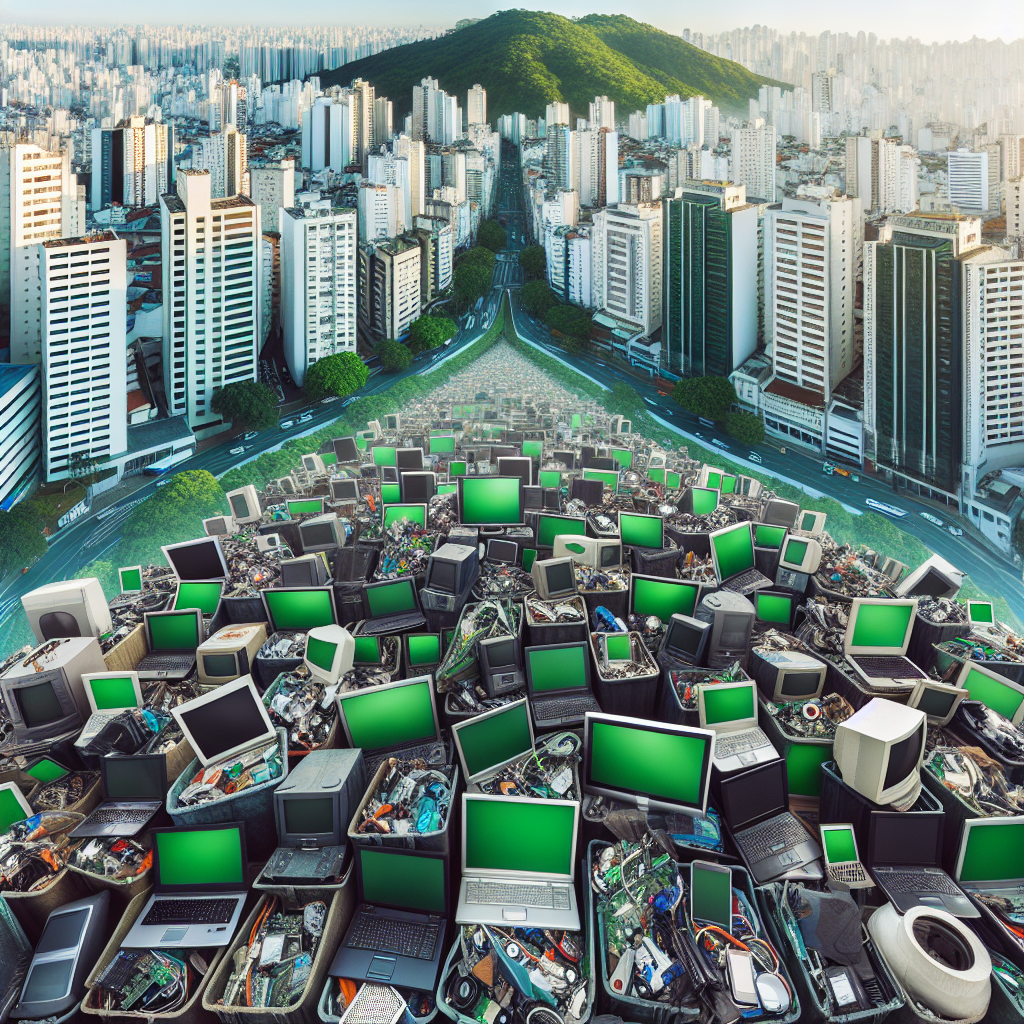Blog Ecobraz Eigre

Electronics Recycling for E-commerce in São Paulo
Introduction
Electronic recycling is an essential component for environmental sustainability and legal compliance in the context of e-commerce in São Paulo. The increasing generation of electronic waste demands effective solutions for proper disposal and the recovery of valuable materials, contributing to reducing environmental impact and complying with current legislation.
Legal Context and Regulation
The management of electronic waste in Brazil is mainly regulated by Law No. 12,305/2010, which establishes the National Solid Waste Policy (PNRS). This law sets shared responsibility among sectors involved in the production chain, including e-commerce, ensuring that waste is properly collected, recycled, and disposed of.
Furthermore, the National Information System on Solid Waste Management (SINIR) provides guidelines and official data that support the sustainable management of this waste in São Paulo and throughout the national territory.
Recycling Challenges in E-commerce
E-commerce in São Paulo faces specific challenges related to reverse logistics and proper segregation of discarded electronic equipment. The diversity of materials and components requires specialized technical processes for dismantling and reuse, as well as the safe elimination of potentially toxic elements.
Procedures for Recycling and Collection
To ensure the correct disposal of electronic waste, the adoption of efficient systems for electronic waste collection is fundamental, enabling the safe and environmentally appropriate gathering of devices out of use.
Measures include segregation, transportation, and forwarding to specialized units that perform the recovery of recyclable materials and the environmentally appropriate disposal of hazardous components. These processes must comply with technical and environmental standards, ensuring safety throughout the production cycle.
Sanitization and Secure Data Disposal
Another critical point in e-commerce is the safe handling of devices that store data, such as hard drives (HDs) and digital media. To ensure data protection, it is essential to implement rigorous procedures for electronic media sanitization, preventing data leaks and complying with current regulations.
Technical Recommendations and Best Practices
E-commerce should prioritize partnerships with certified electronic recycling operators, ensuring compliance with environmental legislation and observing scientific criteria for waste management. The adoption of integrated logistics systems facilitates traceability and transparency throughout the process.
Additionally, proper guidance to consumers and employees about the importance of correct separation and adequate forwarding of electronic waste contributes to the success of these initiatives.
Benefits of Electronic Recycling
Recycling electronic waste promotes the reduction of the volume of waste sent to landfills, decreasing soil and water contamination. The recovery of secondary raw materials, such as precious metals and plastics, supports the circular economy and reduces the extraction of natural resources.
Moreover, compliance with the National Solid Waste Policy adds value to the reputation of e-commerce, contributing to corporate social responsibility and alignment with ESG (Environmental, Social and Governance) principles.
Conclusion
E-commerce in São Paulo must implement robust practices for electronic recycling, focusing on current legislation, data handling security, and efficiency in logistical operations. The adoption of certified systems for electronic waste collection and storage device sanitization are indispensable strategies to ensure sustainability and security in the sector.
Official sources such as SINIR, Law No. 12,305/2010, and environmental agencies of the state of São Paulo, such as CETESB, are fundamental references for regulatory basis and monitoring.

Deixe um comentário
O seu endereço de e-mail não será publicado. Campos obrigatórios são marcados com *